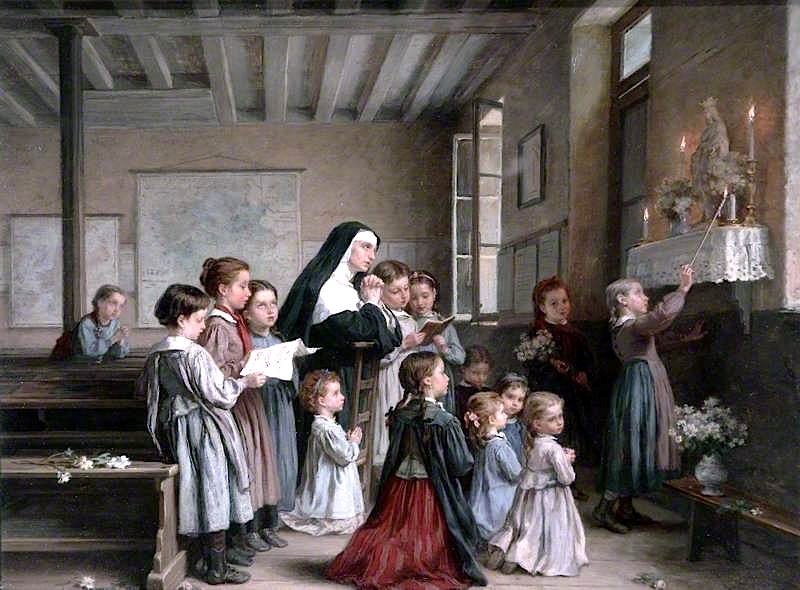
THE READING CORNER
Beautiful Teaching Newsletters
-

Why is History Important: The Path of Noble Learning
The study of history is the study of time and a consideration of the people, places, and events of the past. As teachers of history, our task is two-fold, 1) to understand historical epochs and their relationship to the tradition from which they are coming; and, 2) to see and understand historical development in the course of human events and our relationship…
-

Trivium-Based Lessons
The trivium are “ways” or “modes of thought” with which and by which students are schooled in the arts of language. We teach the arts of language through content, pedagogy, tools, and in developmental stages. Within this context, the trivium is applied holistically. In keeping with the philosophy of the ancient teachers, we can and must say that the trivium intermingles within itself; the arts of language are studied in relation to one another in all stages of development. As humans we continually listen, speak, think, read, and …
-

Mimetic Instruction: A Classical Approach
Mimetic instruction is a Platonic and Aristotelian mode in the tradition of classical education. Its roots are in the Greek term, mimesis, which refers to the ideas of imitation and mimicry. Simply translated, mimesis means “imitation.” Defining mimesis and looking for its historical significance in education is necessary if we are going to practice the art of imitation as a classical mode of instruction. In modern educational theories it is common to hear references to “model lessons,” meaning that the teacher presents an idea, …
-

Whats in a Name? Classical vs. Neoclassical Schools
A charter school is opening down the road from your house. The website says it’s a classical school. It’s a lovely website, with federalist architectural motifs and words like “wisdom” and “virtue” in the tag line. The Google reviews give it 5 stars.
You schedule a tour. The headmaster shows you classrooms with desks in rows (not pods), with an explicit phonics curriculum, a Singapore math coach, and a class set of Charlotte’s Web….
-

Before the Books
Most classical educators would agree that our aspirations for children, encompassing as they do their complete moral and spiritual acculturation, are far more humane than the goals of the educational system at large, which prioritizes career readiness above all else. Likewise, most classical educators would affirm that the typical classical curriculum, rooted in the greatest texts and practices which we inherit from the Western tradition, has far more to offer young people than the curricula commonly used in non-classical schools.
-

Norms & Nobility: What's the Big Deal About This Book?
If you ask a group of classical educators what books you should read, and no one mentions Norms and Nobility by David Hicks, you should probably find another group. Few contemporary books have made such a strong case for why education should be anchored in the ideas of the classical past.
-

Why Pride & Prejudice Isn't Just for Girls
It's the quintessential girls night pick: Pride & Prejudice. I’ve spent many an evening giggling over the 1995 miniseries with my sisters, and I still swoon over Darcy’s walk on the moors in the 2005 version. (And, yes, I will argue that Matthew McFadyen’s is at least an equal, if not better, Darcy than Colin Firth’s until late hours of the night.)
Austen has become such a quintessential choice for a feel-good rom-com that we’ve begun to classify her novels with the films...

